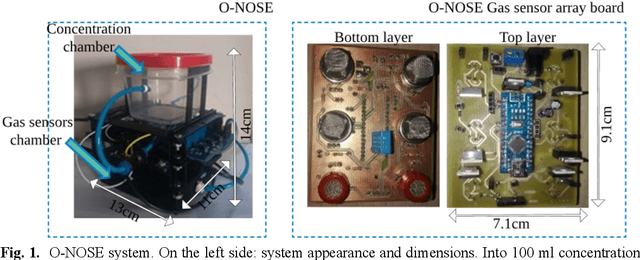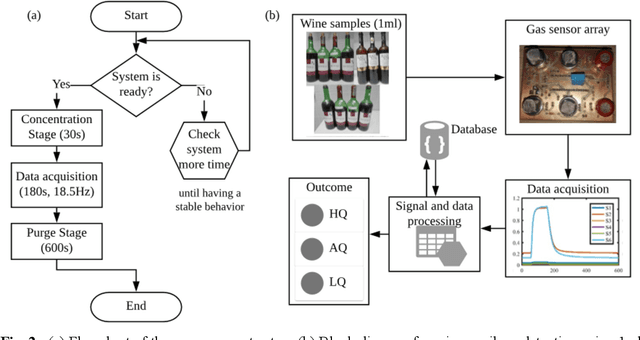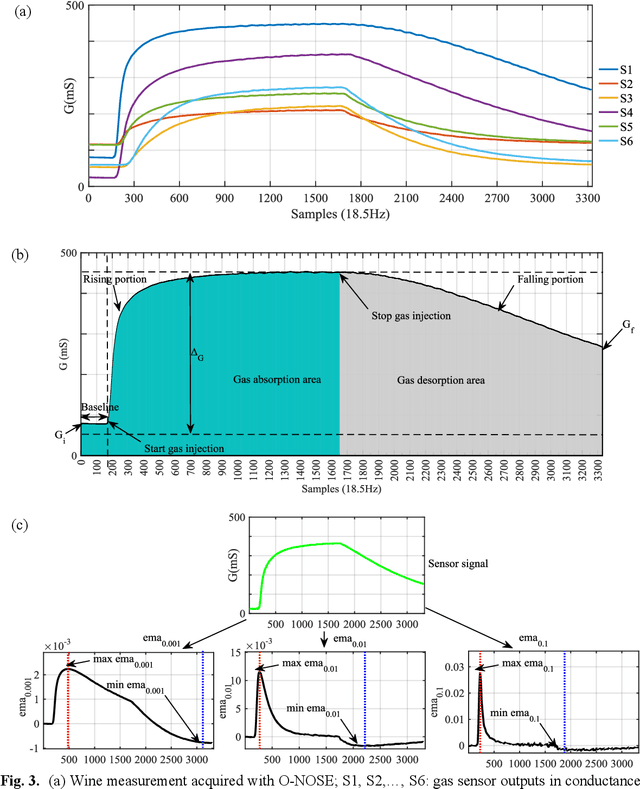Juan C. Rodriguez Gamboa
Wine quality rapid detection using a compact electronic nose system: application focused on spoilage thresholds by acetic acid
Jan 16, 2020



Abstract:It is crucial for the wine industry to have methods like electronic nose systems (E-Noses) for real-time monitoring thresholds of acetic acid in wines, preventing its spoilage or determining its quality. In this paper, we prove that the portable and compact self-developed E-Nose, based on thin film semiconductor (SnO2) sensors and trained with an approach that uses deep Multilayer Perceptron (MLP) neural network, can perform early detection of wine spoilage thresholds in routine tasks of wine quality control. To obtain rapid and online detection, we propose a method of rising-window focused on raw data processing to find an early portion of the sensor signals with the best recognition performance. Our approach was compared with the conventional approach employed in E-Noses for gas recognition that involves feature extraction and selection techniques for preprocessing data, succeeded by a Support Vector Machine (SVM) classifier. The results evidence that is possible to classify three wine spoilage levels in 2.7 seconds after the gas injection point, implying in a methodology 63 times faster than the results obtained with the conventional approach in our experimental setup.
 Add to Chrome
Add to Chrome Add to Firefox
Add to Firefox Add to Edge
Add to Edge